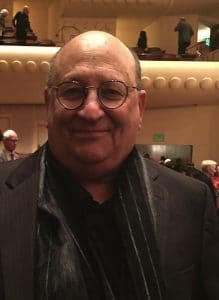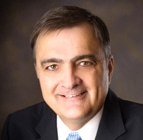SMART–TD is proud to represent the men and women driving the buses in America. The vast majority of our bus operators are assigned to fixed routes and drive 40–50-foot buses which require a Commercial Driver’s License, (CDL). These norms are and always have been the standards of mass transit.
Another consistent theme of mass transit has been that it transported people “in mass.” That seems like a detail that should be baked into the cake. Lately, bussing companies bussing departments in some metropolitan areas, and even the federal government have begun to lose their focus on this truth.
There is a new focus emerging known as “Micro-Transit.” This entails folks using an app or calling in and requesting personal transportation from their door to the location of their choosing. Maybe I’m missing something, but that is called calling a cab or an Uber.
What is not clear, is why our tax dollars are going towards subsidizing someone’s taxi ride. During the pandemic, there was a natural incentive to get creative finding ways to reduce the amount of people in confined spaces like public buses. But the offering of these micro transit options at the expense of the public feels like we are all being taken for a ride.
This is not just a waste of all of our money in the form of government spending, but it is a direct threat to the livelihoods of our SMART Bus Operators. These micro transit options that are popping up nationwide are beginning to reduce ridership numbers on the fixed bus routes. Reduced head counts will eventually manifest themselves as issues in the way of reductions in fixed routes, less need for our traditional bus operators, and a decline in the budget for maintenance on the bus fleets.
It is not a matter of our operators transitioning to driving micro transit vehicles and moving on with their lives. There are many factors that make that an unrealistic solution to the problem.
First, and most obvious, is that CDL’s are not a requirement to drive the types of vehicles used in micro transit. All that is needed to operate these vehicles is a Class C driver’s license in most states. A Class C is much easier to obtain, requiring far less training and does carry with it the federal standards and expectations of a CDL. Fittingly, the micro-transit operators do not get paid on the same scale as our SMART–TD fixed route brothers and sisters. Additionally, some micro transit drivers are not union workers therefore they do not enjoy collective bargaining or the pay and healthcare benefits that come with it.
These operators have families who depend on their income, benefits packages, and the schedules they have earned via their seniority. Working on call for less money and no union protection and losing their seniority by working for new employers is not an apples-to-apples comparison.
On top of the injustice that publicly subsidizing micro transit heaps on our SMART membership, there is the short-sited use of our public dollars at issue. The Federal government has a fixed amount of funding set aside for public transportation each year. This is to say that for every dollar that gets sent to the micro-transit sector, mass transit loses access to that dollar. From SMART–TD’s perspective, our union members are not the only people with a dog in this fight.
Mass transit receives public funding for a reason. It brings about public good. Getting people to work, medical appointments, and the grocery store each day is not only a public service, but it is good public policy. Our bus operators are critical to this country’s economy and the quality of life for many of our citizens. The return on investment that occurs when tax dollars are used to promote and enhance public transportation has proven time and again to be among the best investments this country can make in itself. To take a single dollar away from this system to provide door-to-door service to get Karen from the suburbs to a restaurant in the city and back home is not creating anywhere close to the same benefit for our nation.
The arguments against publicly funding micro transit go on and on. Higher cost of maintaining larger fleets of vehicles that are more prone to problems, lower life expectancy of the smaller vehicles compared to the standard busses, and most importantly the loss of safety brought on by running these vehicles through our communities without the valuable and certified expertise of our SMART brothers and sisters operating them, are among the problems being referred to.
To highlight SMART–TD’s objections to this shift to publicly supporting micro transportation, we would summarize by saying that it is nonsense to spend our tax dollars on a more expensive transportation model that serves fewer people, pays lower wages, and reduces the role of our highly skilled bus operators. As SMART members, and as tax-paying Americans, we should all be aware of the slippery slope we are on with this phenomenon and should take every opportunity to speak out against it.
 U.S. Secretary of Transportation Elaine Chao said at CES, an annual technology show in Las Vegas, that she plans to take steps toward creating policy guiding the development of self-driving transportation for trucks, buses, transit systems and trains. One of the steps that Chao plans to take toward creating this new policy is to deregulate these industries.
U.S. Secretary of Transportation Elaine Chao said at CES, an annual technology show in Las Vegas, that she plans to take steps toward creating policy guiding the development of self-driving transportation for trucks, buses, transit systems and trains. One of the steps that Chao plans to take toward creating this new policy is to deregulate these industries.
